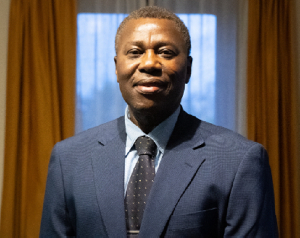The Novel. Of Alice Walker. Norman Mailer. Mia Couto. Doris Lessing. Octavio Paz. Samuel Beckett. Ken Saro-Wiwa. Zora Neale Hurston. Aleksandr Solzhenitsyn. Saul Bellow. James R. Lowel. Oliver Wendell Holmes, Sr. Phillis Wheatley. Czeslaw Milosz. Raja Rao. Philip Roth. Kenzabur? ?e. Martin L. Amis. Maryse Condé. Daniel Dafoe. Edward K. Braithwaite. Daniel Maximin. Robert Hayden. William C. Bryant. Es’kia Mphahlele. Mark Twain. Sonia Sanchez. Adrienne Rich. Guan Moye. Jorge Louis Borges. Dante. Anna Akhmatova. George Lamming. Eugene O’Neill. Samuel B. Beckett. Jonathan Swift. Louise Bogan. V.S. Naipaul. Honoré de Balzac…The greatest writers of all time! The Scarab Beetle!
And these, Chinua Achebe’s “the fiction”! All because of the pathfinding intellectual abilities, of the accommodating tenor, O Great People of the World, of The Scarab Beetle. The Voice of moral conscience; The Voice of conviction. Yet good literature, The Novel, “the fiction,” supposedly takes after the characterological heart of a nation; the anti-progressive nation of George Orwell’s “Animal Farm” and “Nineteen Eighty-Four.” Then again, The Novel, “the fiction,” underscores the moral dignity of a nation’s “true” character. Why then is the schizophrenic “scholar,” a wannabe ruler of The People, vigorously opposed to it, Achebe’s “the fiction”?
By whom exactly? The Danquah-Busia gangsters, to appropriate Kwame Botwe-Asamoah’s phraseology, and their ideological scions, O Great People of the World, have mustered the courage to question the originality of The Novel, ignoring the fact that the complex intratextual layering of “the fiction” is as interpretively labyrinthine as Nuruddin Farah’s “Maps” and Gabriel Garcia Marquez’s “One Hundred Years of Solitude” and Ben Okri’s “The Famished Road” and Salman Rushdie’s “Midnight’s Children” are as colorfully majestic. Still, according to the unpoetic, prosaic voice of Chinua Achebe, the tuberculoid ribcage of the gigolo-detractors and lizard-enemies of The Scarab Beetle is manifestly, if The People can put it simply at that, the secluded Igloo of Joseph Conrad’s “Heart of Darkness.”
The fiction. Farah’s “Maps” and Soyinka’s “Of Africa,” revolving-doors of identity crisis…African Personality! As yet. The Novel…The Fiction…Chinua Achebe!
Joseph Conrad’s “Heart of Darkness.” Elie Weasel’s “The Night Trilogy: Night, Dawn, Day.” Adam Hochschild’s “King Leopold Ghost.” Nuruddin Farah’s “Blood in the Sun Trilogy.” Ralph Ellison’s “Invisible Man.” Harriet Beecher Stowe’s “Uncle Tom’s Cabin.” Toni Morrison’s “Beloved.” Richard Wright’s “Native Son.” John Griffin’s “Black Like Me.” Clarence Lusane’s “Hitler’s Black Victims: The Historical Experiences of European Blacks, Africans and African Americans During the Nazi Era”…All coalesce into one of The Scarab Beetle’s majestic magna opera “Africa Must Unite.” The Novel, “the fiction”! True, “the fiction” is none other the precise locational G-spot where the literary phallus of Achebe’s “Things Fall Apart” and The Scarab Beetle’s literary pudendum meet! Naturally, the schizoid “scholar” would be vigorously antagonistic to this literary carnal-knowledge of “the friction.”
Interestingly on the other hand, though, Achebe, a literary archeologist, a literary psychologist, a literary anatomist, has diagnostically located the characterological asymmetry of The Scarab Beetle’s lizard-enemies and gigolo-detractors in “An Image of Africa: Racism in Conrad’s ‘Heart of Darkness,’” perhaps, O Great People of the World, the most salient standalone leaf luxuriating among the foliage-community of Achebe’s “Hopes and Impediments.” Yet another wind-borne paradox says this catena of detractors and enemies is more obsessed with Achebe’s titular “Impediments” than with his titular “Hopes,” for they, a suite of barefaced detractors and enemies, appear more interested in insinuating herculean “impediments” into the exegetical pathways of sound Nkrumah scholarship than in raising the “hopes” of the youth who must be told the truth, “the fiction.”
Who? Sad fate of The Country’s misguided youth! J.B. Danquah. Christopher Columbus. K.A. Busia. Colonialism. P.W. Botha. Marco Polo. Mobuto Sese Seko. Slavery. Pirate Hawkins. Akwasi Afrifa. Chief Mangosutho Buthelezi. Idi Amin. Apartheid. Jim Crowism. “…All these great men were doing, robbing, raping, kidnapping, and killing; so-called men, were doing, robbing, raping, kidnapping, and killing; so you can’t blame the youths; you can’t fool the youths; you can’t blame the youths; you can’t fool the youths…! Says who? Peter Tosh. Source? You Can’t Blame the Youth, “the fiction”!
That is not all, however. Admittedly, it is in these varied contexts that Achebe audaciously brands Joseph Conrad a “thoroughgoing racist,” a politically correct phraseology not unlike the descriptive formula that captures the political ethnocentrism, ethnocracy, or even ethnic nationalism of the blind “scholar.” Rabid haters of The Scarab Beetle, Charles Marlow. Who? Ask the Charles Marlow of Joseph Conrad’s “Heart of Darkness”! Yet Edward W. Said and Chinua Achebe, both deceased and alive, would clash over the exact exegetical contours and authorial originality of “Heart of Darkness,” O Great People of the World, until The Scarab Beetle’s mediating portfolio, “Consciencism: Philosophy and Ideology for Decolonization,” issued a verdict in favor of Achebe! Yet, not a man to mince his words, Achebe then tells them, The Scarab Beetle’s recycled detractors and enemies, to their overcast faces:
“Even the illiterate thief General Akwasi Afrifa, a street urchin, a Machiavellian fathead who unabashedly stole Geronimo’s name, authored a book, O Great People of the World, titling it ‘The Ghana Coup, 24 February 1966,’ but, as it were, The Scarab Beetle, a skillful writer, an academic, The Novel, “the fiction,” a trained philosopher in one of America’s elite universities, Benjamin Franklin’s own University of Pennsylvania, cannot write. Ostensibly. So saith the shameless enemies and maudlin detractors of The Scarab Beetle.”
Yet, having said all that, Chinua Achebe’s and The Scarab Beetle’s have a major problem on their hands, a recurring headache centered on the question of a strategic facility to address The Country’s national disgrace, the “scholar,” a thorn in The Country’s side. The sick “scholar,” a rolling ball of fermented kenkey consumed by Asperger’s syndrome, constantly if directly looks into a gutter-mirage and somehow thinks he sees revolving images of distortive haunting-tunes of The Scarab Beetle, of Wole Soyinka, of William Shakespeare, of Toni Morrison, Chimamanda Ngozi Adichie, of Wilson Harris, of Derek Walcott sneering at him…What a national disgrace, J.M. Coetzee’s “Disgrace”! The “scholar,” a senile wreath of multiple personalities, an emasculate weave of cognitive and spiritual misalignments, thinks he is the moral equivalent of the Transfiguration of Jesus! The “scholar,” a grotesque prisoner of self-delusion!
The “scholar,” a congenital liar, a pathological liar, a synesthetic android...Yes, he mistakenly thinks his weightless mind is the herculean weight of the universe. He mistakenly thinks psittacine parroting is the equivalent of sophisticated human language. He openly wears his garbage of tattered degrees around his flea-infested neck as dog tags and on his torpedo-head as a threadbare “stupid hat.” Where is his “thinking cap,” his schizophrenic personality, his multiple personality disorder? The “scholar” savors his stinking vomit, swims in it whenever he has the opportunity…And oh, the “scholar” thinks he is all that. And more. Even less!
Yet he, the “scholar,” a fairy-tale mortician, and his catalogue of urban mythologies are declared unwholesome in the paginated dustbins of The New York Times, Transition Magazine, The New Yorker, The Wall Street Journal, Harvard Review…Yet the noble likes of Wole Soyinka, Chimamanda Ngozi Adichie, Chinua Achebe, Ngugi wa Thiong’o, Derek Walcott, Kwame Dawes, Dennis Brutus, Kwame Anthony Appiah, Chris Abani…amuse themselves in the prestigious critical pages of The New York Times, Transition Magazine, The New Yorker, Harvard Review, The Wall Street Journal at will. Has anyone chanced upon Kwame Dawes’ edited volume “So Much Things To Say: 100 Poets From the First Ten Years of the Calabash International Literary Festival” yet, O Great People of the World? Missing in action, the “scholar.” And you cannot discover him in Jimmy Carter’s “Palestine: Peace Not Apartheid.” Either!
Guess what? Thanks to the rapt ancestors of ethno-animal human creativity the “scholar” just cannot sing-write melodiously as the greatest pens and voices of all time have admirably done, an acknowledgment not out of tune with the lightning mystery and aesthetic quaintness of cultural synesthesia. How so? Wole Soyinka, Ama Ata Aidoo, Ngugi wa Thiong’o, Atukwei Okai, Amiri Baraka, Toni Morrison, Ama Mazama, Kofi Awoonor, Machado de Assis, Chris Abani…read like Fela Kuti, Bob Marley, John Lennon, Peter Tosh, Bob Dylan, KRS-1, Lucky Dube…Chinua Achebe, Maya Angelou, Chimamanda Ngozi Adichie, Ayi Kwei Armah, Derek Walcott, Alice Walker, Kofi Anyidoho…read like Koo Nimo, Robyn Schulkowsky, Theolonious Monk, King Ayisoba, Wynton Marsalis, Guy Warren, Chevalier de Saint-Georges…Literary symphony.
Remarkably, though, Bob Marley for one is such an excellent exemplar of aesthetic synesthesia; Bob Marley, an ethno-animal human being of profound lyrical calligraphy, of poetic rhythmicity. Similar to Maya Angelou’s crossover creativity in respect of her influential work with a string theory of individuals across musical and literary genres. Interesting, isn’t it? Bob Marley’s “Africa Unite”; The Scarab Beetle’s “Africa Must Unite.” Must? Serendipity or fateful coincidence? Has anyone taken a more penetrating look at Kwame Dawes’ critical work “Bob Marley: Lyrical Genius,” O Great People of the World? Such a rich tapestry of ethno-animal human creativity! More so a crucial point of synesthetic unity between profound literariness and sensual lyricality, an ideological refrain unlike the old-hat divisive nature of the “scholar,” who, it is widely believed, lacks a coherent philosophy of agreeable community.
Oddly enough, O Great People of the World, the “scholar” derives his red-hot ethnocentric and ethnocratic tendencies from Chinua Achebe, then a politically immature Chinua Achebe, his nominal mentor, his titular role model, one of the slippery shadows, like Christopher Okigbo, behind Biafran secessionism, an ethno-nationalist project Wole Soyinka never has supported, now or then. The “scholar,” Achebe’s “Things Fall Apart.” The “scholar,” Soyinka’s “The Open Sore of a Continent.” The “scholar”; a failed state; Afghanistan, Somalia, Eastern Congo! Namely that national disintegration and ethno-political polarization is his stock-in-trade, the “scholar”! The “scholar” is thus the height of moral stupidity!
Now, given the aesthetic anomaly on the part of the “scholar,” O Great People of the World, it is understandably no longer a hanging suspicion why literate citizens of The Country should ask the following question: Is it not a strange, confused irony, even a paradox, that The New Yorker, The New York Times, Harvard Review, Transition Magazine, The Wall Street Journal, all prestigious and world-famous, would blatantly refuse to advertise the literary obituary of the “scholar” prior to the historic birth of his literary obituary? The “scholar,” Kobina Sekyi’s “The Blinkards”…Hahahahahaha. Let the world know the “scholar” mistakenly thinks he is an intellectual Gulliver in the island nations of Blefuscu, of Lilliput, Jonathan Swift’s “Gulliver’s Travels.” Yet the rabid dogs of unglorified scholars among whom he squats are surprisingly unfamiliar with his nagging barks of superior literaryism…Why is the decomposed worm-infested carcass of the written works of the “scholar” unceremoniously buried in unmarked graves?
Question: What role has “the fiction” in rehabilitating the “scholar” after his postnatal intellectual hemispherectomy in the theatre of literary criticism? The secessionist Biafran-mind of an evil ethno-animal man, the natural antithesis of Achebe’s “the fiction,” the “scholar.” My, oh, my, the “scholar” is indeed a mockingbird of ethno-animal human self-devaluation, a national tragedy. Indeed. Oh man! The “scholar,” the major reason The Country is in perpetual decay, moral decadence…The “scholar,” a faceless presentiality “Who,” the philosophical attic in Amiri Baraka’s controversial Twin-Tower poem “Somebody Blew Up America?” What exactly should The Country do with the “scholar” by way of excising his ethnocratic, ethnocentric cancerous growths on the body politic, of exorcising him of his devilish, misanthropic proclivities?
Dialogue begins:
The “scholar”: “There was a country, wasn’t it?”
Chinua Achebe: “The where?”
The “scholar”: “I don’t know!”
Chinua Achebe: “You don’t know?”
The “scholar”: “Of course I don’t.”
Chinua Achebe: “Is it some kind of madness you have, some kind of joke?”
The “scholar”: “Yes, they call it manic-depression!”
Chinua Achebe: “Well, there never was any such country in the first place!”
The “scholar”: “This is very confusing.”
Chinua Achebe: “There was a country…is merely one of the remarkable Platonic noble lies!”
End of dialogue.
The fiction. The Novel. What exactly is Achebe saying? That the subtle absence of that “country” ironically stands in for the overt presence of the “scholar’s” manic-depression, his bipolar disorder. The “scholar,” an implosive mix of juvenile contradictions. The “scholar,” a poison ivy, an extinct clade of the Nation of Poisonous Plants (NPP). The “scholar,” an intellectual Father Christmas. The “scholar,” a scholarly Napoleon Complex. The “scholar,” a minor poet, a disappointing journalist in Aleksandr Solzhenitsyn’s “The Gulag Archipelago.”
The fiction. The Novel. The “scholar,” a dyslexic loudmouth. The “scholar,” a dying incontinent gargoyle replica. The “scholar,” Bob Marley’s “Crazy Baldheads.” The “scholar,” Kofi Awoonor’s “dung”; “This Earth, My Brother.” The “scholar,” a scholarly hoax; P.T. Barnum’s illusionism. The “scholar,” a travesty of commonsense. The “scholar,” a miasmic aura. The “scholar,” a skunk’s anal scent glands. The “scholar,” a parody of civilizational decency. The “scholar,” Dante’s Inferno.
The “scholar,” The Brethren, the detractors and enemies of…The Scarab Beetle! And here is what Frederick Douglass says of the “scholar”: “I would keep the merciless slaveholder profoundly ignorant of the means of flight adopted by the slave. I would leave him to imagine himself surrounded by myriads of invisible tormenters, ever ready to snatch from his grasp his trembling prey. Let him be left to feel his way in the dark; let darkness commensurate with his crime hover over him; and let him feel that every step he takes, in pursuit of the flying bondman, he is running the frightful risk of having his hot brains dashed out by an invisible agency.”
What are there for The People to be wary of? The “scholar,’ Douglass’ “merciless slaveholder.” The “scholar,” Douglass’ “the flying bondman.” The “scholar,” Douglass’ “trembling prey.” Then “invisible agency,” “myriads of invisible tormenters,” “hot brains dashed out,” “the slave,” “in pursuit,” “his crime,” “running the frightful risk”! What are they collectively? The “scholar’s” manic-depression, his bipolar disorder! The “scholar” of a dog chasing after his own tail in concentric circles of mental decay! Consequently, in the end, Chinua Achebe, a conscious philanthropic ethno-animal human, bases his final words of advice to The Scarab Beetle’s erratic train of detractors and enemies, O Great People of the World, on James Baldwin’s literary wisdom, titularly described as “Notes of a Native Son.”
Does Achebe not devote a chapter to James Baldwin called “Postscript: James Baldwin (1924-1987)” in his “Hopes and Impediments”? And do James Baldwin and Kwame Nkrumah not pass on at age 62-63? All true. Baldwin writes in “Stranger in the Village”: “Every legend, moreover, contains its residuum of truth, and the root function of language is to control the universe by describing it…People who shut their eyes to reality simply invite their own destruction, and anyone who insists on remaining in a state long after that innocence is dead turns himself into a monster…” Every legend…Residuum of truth…Root function of language…Control the universe…The fiction…The Scarab Beetle…
Questions: Where is the brain-dead “scholar” when he is already six feet under in the graveyard of self-ignorance, of self-pity? Where is the yechy unrecognized self-styled poet and writer, the “scholar”? What has the “scholar,” an embodiment of Sigmund Freud’s Oedipus complex, got to say about James Baldwin’s remarkable observations, his “root function of language”? In other words, about The Voice, The Novel, “the fiction”…? Why does Virginia Woolf commit suicide? Why does Virginia Woolf’s suicide send echoes across the social landscape of sexism? Is Virginia Woolf’s bipolar disorder a social symptomatology of womanly senility in The Country’s Witch Camps? What does Virginia Woolf’s bipolar disorder figuratively say about the social tensions between men and women?
Is Virginia Woolf’s bipolar disorder the “scholar,” The People’s minor poet and disappointed journalist? Does the shoddy political journalism of the “scholar” have any poetic weight among the real intellectual Gullivers of journalism? Does Virginia Woolf’s bipolar disorder abstractly say much about the political and intellectual polarities that exist between the “scholar” and The Brethren on the one hand and The Scarab Beetle on the other hand? Did the “scholar” inherit the bipolar disorder of intellectual tawdriness from the literary genius, Virginia Woolf? And given Frederick Douglass’ prognosis on the intellectual disability of the “scholar,” are The Country and The People finally willing to consign him perpetually to an insane asylum? Should the popular sovereignty of The People go to the sick “scholar” unopposed?
Should The People allow the sick “scholar” to assume the presidency of their collective conscience? Should The Country not set up state-of-the-art psychiatric facilities to examine the heads of aspiring political maniacs such as the “scholar”? Could The People and The Country “save” the sick mind of the “scholar” from the debilitating curse of Rushdie’s “Midnight’s Children,” Okri’s “The Famished Road,” Marquez’s “One Hundred Years of Solitude,” and Farah’s “Maps”?
Or, are The Country and The People willing to administer explanatory if palliative pills of Achebe’s “the fiction,” a fruitful exercise in self-discovery, to the mentally challenged “scholar”?
We shall return…
Opinions of Wednesday, 23 July 2014
Columnist: Kwarteng, Francis














